Queen Elizabeth II has died, aged 96
- Published
Looking back on the life of Queen Elizabeth II
Her Majesty Queen Elizabeth II has died on 8 September 2022 at the age of 96.
She spent 70 years on the throne, after being crowned on 2 June 1953, meaning she ruled Britain for longer than any other King or Queen in history.
During her time as Queen, lots of things changed in Britain. But one thing that never changed was her strong sense of duty to the UK and the Commonwealth.
Queen Elizabeth II will be remembered as a Queen who spent her life keeping the promise she made when she was first crowned - to serve her people and her country.
Here, we take a look back at her extraordinary life.
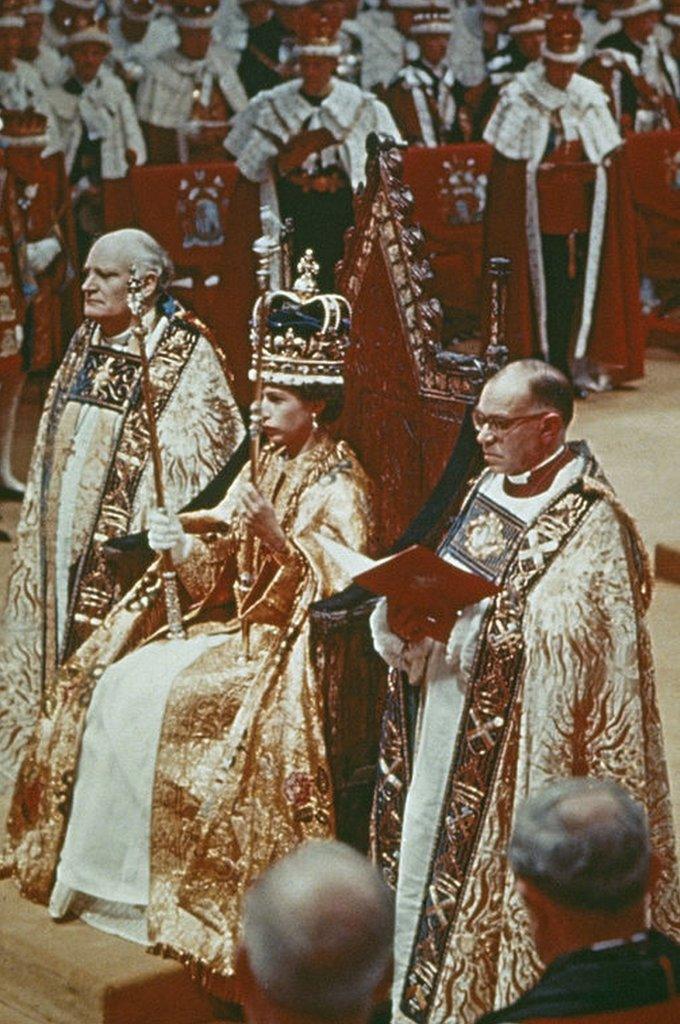
Early years
When Elizabeth was born in London on 21 April 1926, she wasn't actually supposed to be in line to become the Queen.
Her uncle Edward was King, and the rules meant that if he had children, they would one day succeed him.
However, when Elizabeth was 10 years old, her life changed forever.
Edward gave up the throne and, on 12 May 1937, her father took over to become King George VI. This meant she would be Queen when he died.
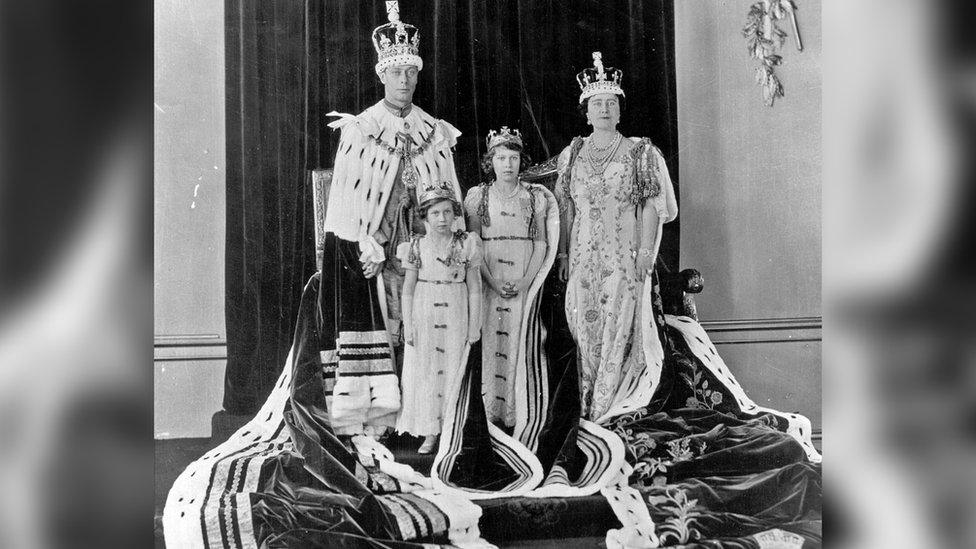
Princess Elizabeth, with her parents and younger sister Margaret, at the time of her father's "very, very wonderful" Coronation
As a young princess, her life was dominated by World War Two.
Her parents decided not to send her younger sister Margaret and her to another country for safety, but instead they lived out the war at Windsor Castle.
It was living through these difficult years that her sense of public duty started to shine through.
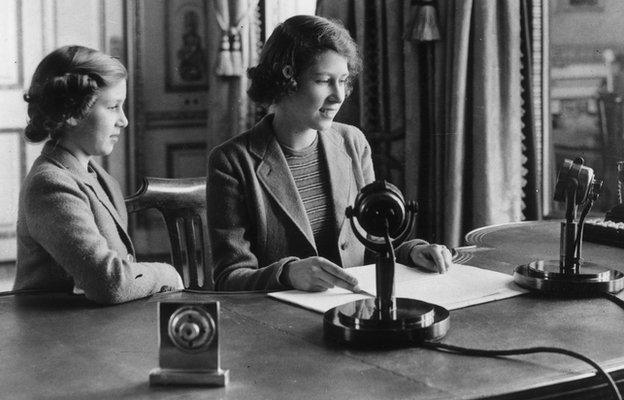
Princesses Elizabeth (right) and Princess Margaret broadcast to the nation in World War Two
She helped to keep people's spirits up by broadcasting messages of hope.
In 1940, she gave her first speech on the radio at the age of just 14.
In it, she sent her best wishes to children who had been evacuated from Britain to keep them safe from the war.
On her 21st birthday, she broadcast a message, saying: "I declare before you that my whole life - whether it be long or short - shall be devoted to your service."
Elizabeth gets married
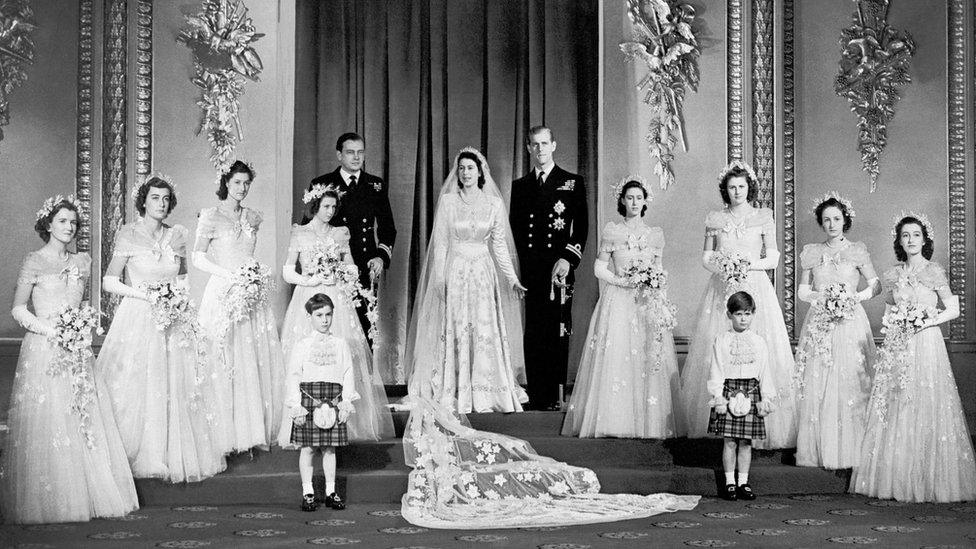
During this time, Princess Elizabeth had also fallen in love with Philip, Prince of Greece.
They married on 20 November 1947 - two years after the war had ended - and huge crowds celebrated their wedding around the country.
The couple received more than 2,500 wedding presents from all over the world and 10,000 telegrams of congratulations.
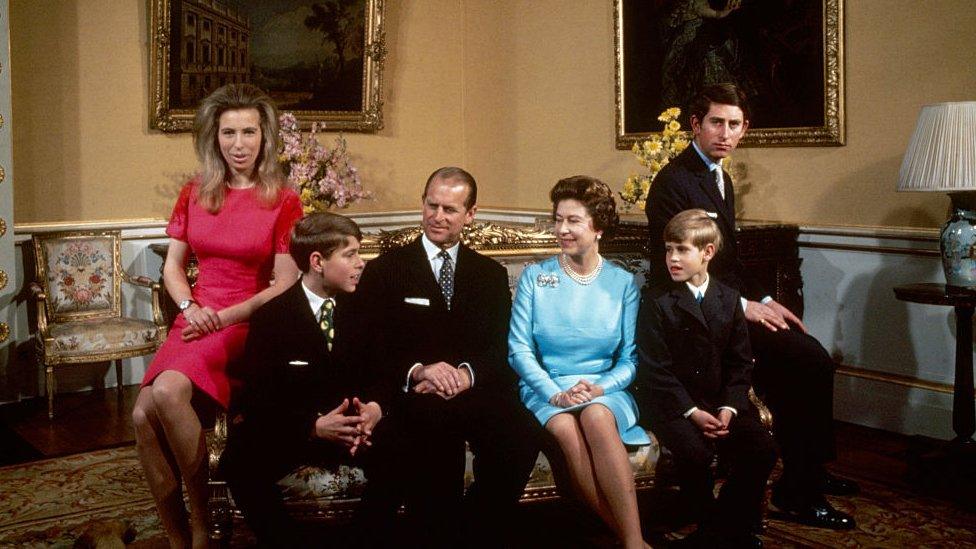
The Queen and Prince Philip had four children together: Prince Charles, Prince Andrew, Prince Edward and Princess Anne. They also had eight grandchildren.
They would go on to have four children: Prince Charles, Princess Anne, Prince Andrew and Prince Edward.
In the early 1950s - not long after she had married Philip - the King's health was not good.
When Elizabeth was just 25, her father King George VI passed away and her life would change forever.
Elizabeth crowned Queen
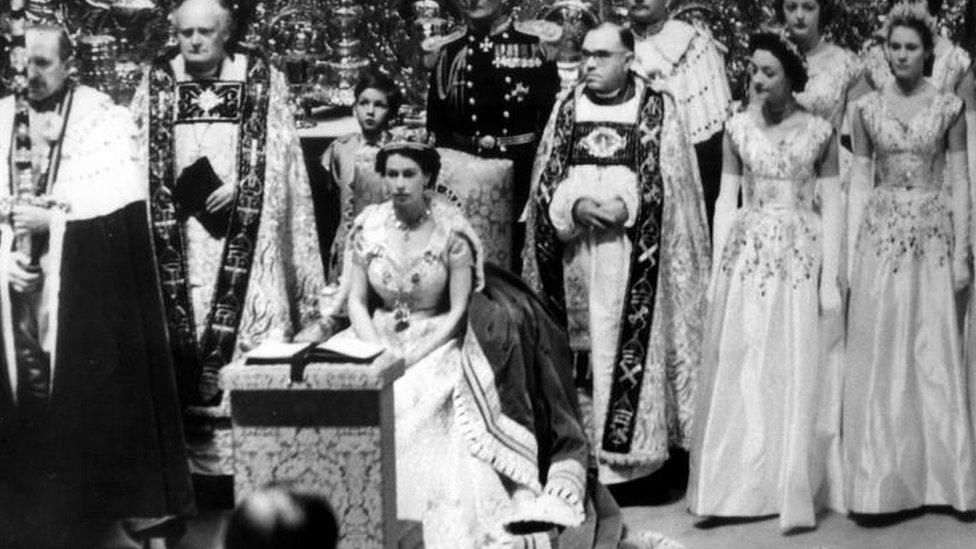
Queen Elizabeth II was crowned on 2 June 1953, making her the longest-reigning British monarch in history
When Elizabeth became Queen in 1952, she did not just become the Queen of Great Britain.
A big part of her role was being head of a special group of countries called the Commonwealth, which includes Australia, India, Jamaica and Canada.
At the start of her reign, just eight countries were part of this group. By the time she passed away, she had increased membership of the Commonwealth to 54 countries.
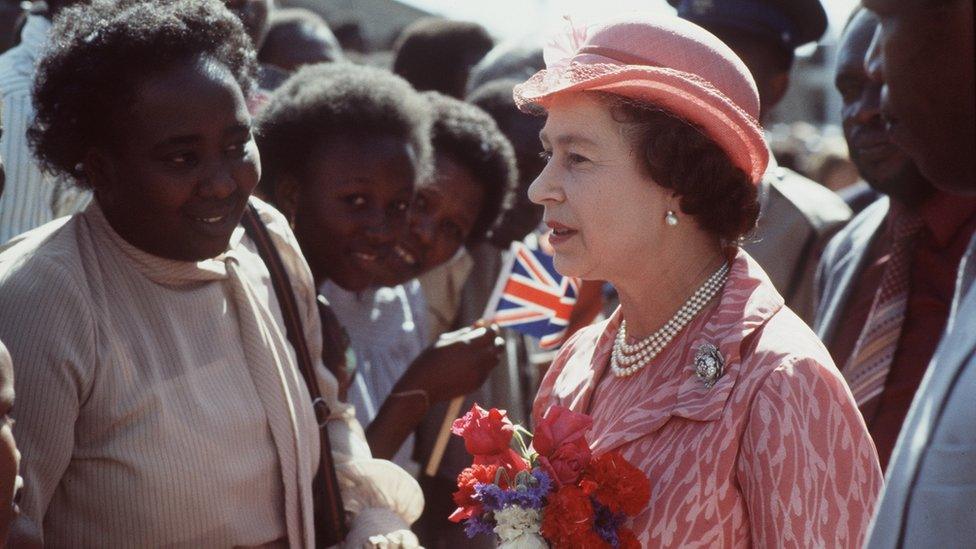
Here, the Queen is meeting people in Nairobi while on a tour in Kenya - one of the countries of the Commonwealth - in 1983
Another part of her job was to offer guidance to politicians here in the UK.
She used to meet with the prime minister every week to be consulted on the biggest issues of the time. Throughout her reign, she worked with 15 different prime ministers.
As Head of State, though, she had to remain completely neutral when it came to politics, so you would never hear her give a political opinion about anything.
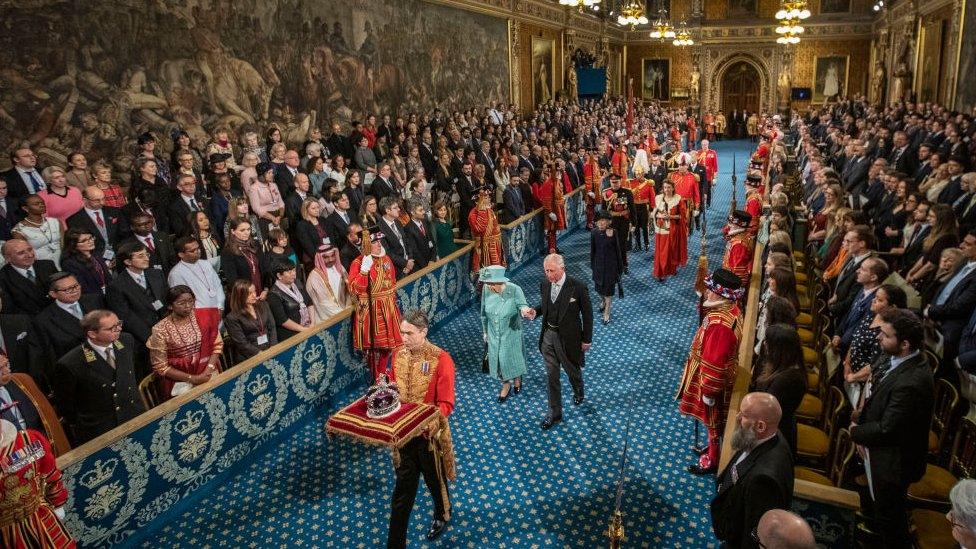
Hundreds of people standing in Parliament and watching the Queen and Prince Charles walk in a procession for the Queen's Speech in 2021
She was also required to open Parliament every year - a very grand ceremony and one she considered to be very important.
She only missed this event three times in her reign: in 1959 and 1963, as she was expecting children and in 2022 when she missed it for health reasons.
Another annual duty was to deliver a Christmas message to the nation.
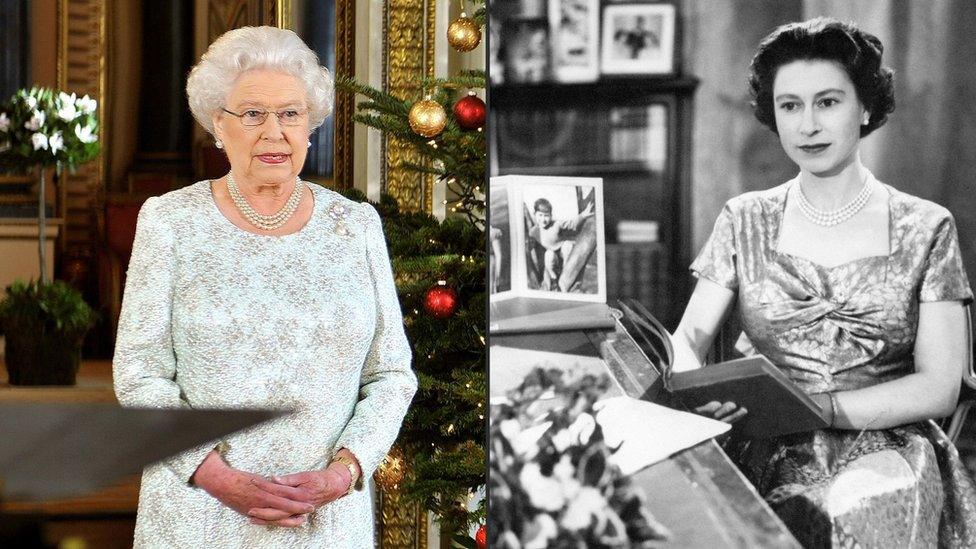
The Queen delivered a Christmas message to the nation every single year of her reign apart from 1969, when a documentary had already been planned to go out. She had to issue a written statement instead that year.
She also held the titles of Head of the Armed Forces, and Defender of the Faith and Supreme Governor of the Church of England.
On top of all of this, she had links with more than 600 charities and organisations, which worked towards different goals, like helping young people and protecting the environment.
So, it's safe to say the Queen was extremely busy indeed throughout her long reign.
In 2015, at 5:30pm on 9 September, the Queen officially overtook her great-great-grandmother Queen Victoria by becoming Britain's longest-reigning monarch.
She was also the oldest, which was - again - a record previously held by Queen Victoria, who died at the age of 81.
Not only that, but Queen Elizabeth II was the longest reigning female monarch in world history.
Challenging times
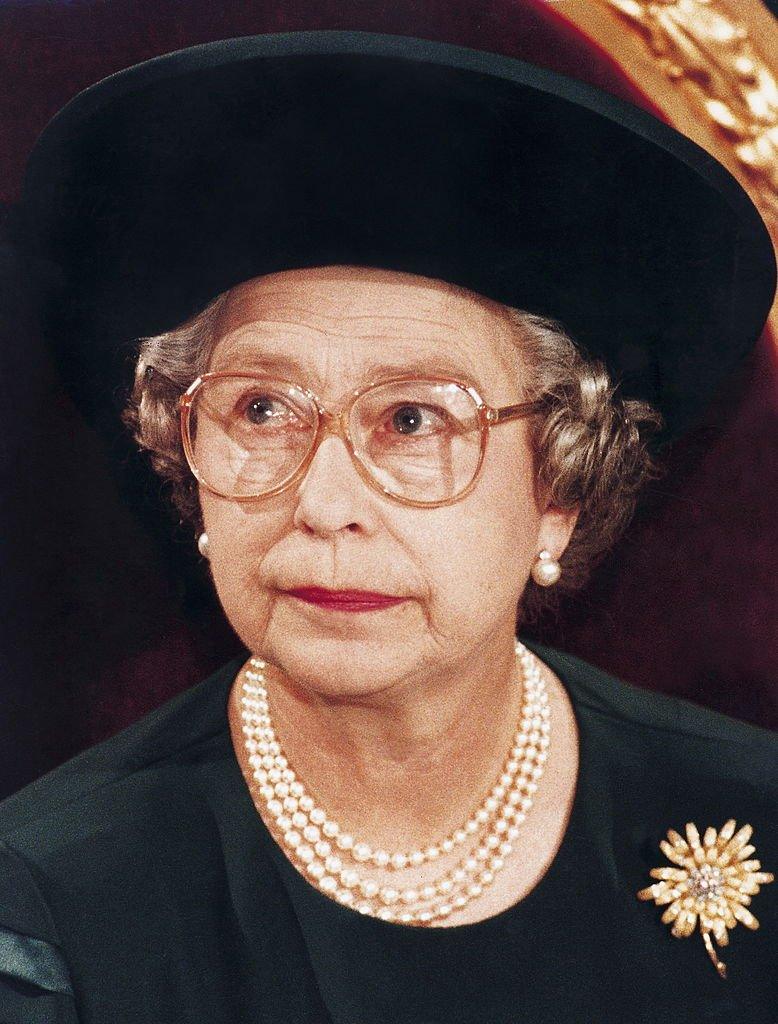
Her time as Queen wasn't always easy.
1992 was a particularly difficult year and she even called it an annus horribilis, which is a Latin phrase meaning horrible year.
The marriages of three of her children broke down and, at the end of the year, there was a terrible fire at her beloved Windsor Castle, where she had spent a lot of her childhood during the war which cost millions to repair.
1992 is not a year on which I shall look back with undiluted pleasure.
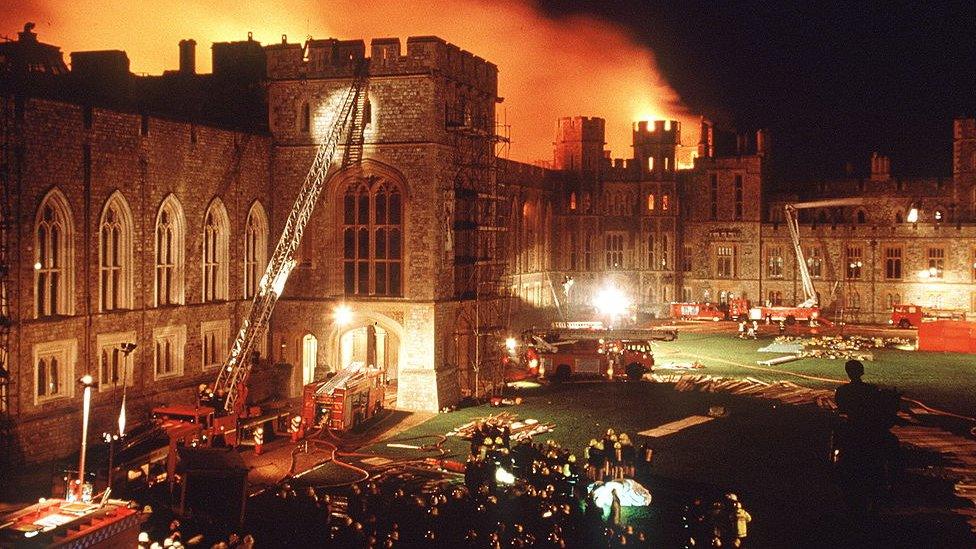
There was a terrible fire at Windsor Castle in 1992.
One of the most difficult periods in her reign came in 1997, after the death of Princess Diana, who had been married to her son Prince Charles and who was the mother of the Queen's grandsons Prince William and Prince Harry.
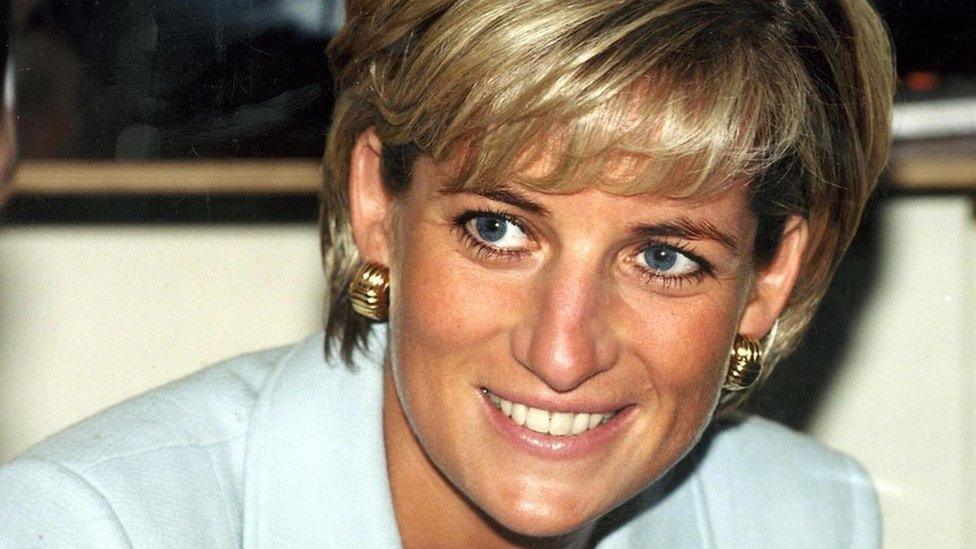
Princess Diana, the mother of Prince William and Prince Harry
Princess Diana had been very popular and when she died there was an outpouring of sadness. Thousands of people left flowers and cards at the gates of her home in London.
At the time, the Queen was in Scotland with the young princes. She decided the family should stay there and grieve in private, rather than go to London where the mourning crowds were or make public statements.
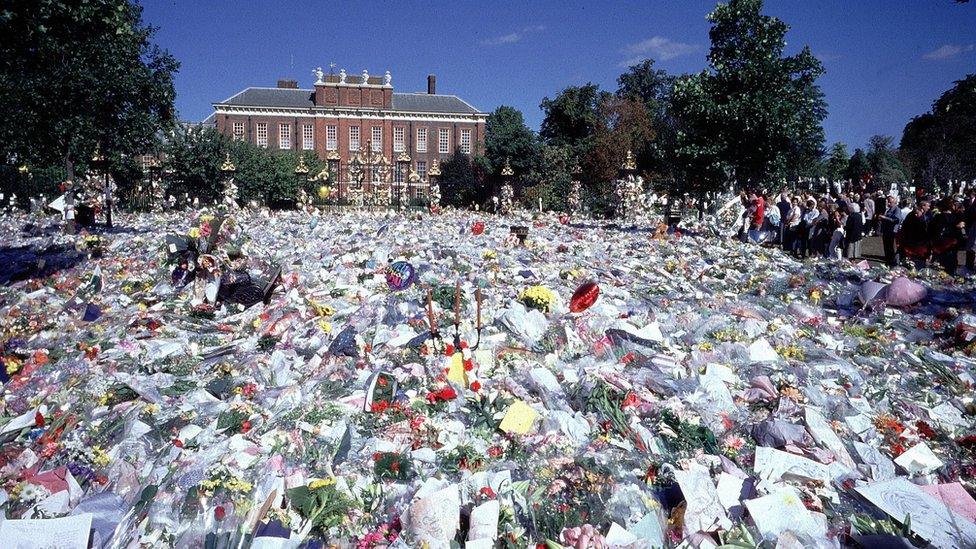
The gates of Kensington Palace were surrounded by tributes to Diana
Many people thought this showed she didn't understand their feelings and that the Queen was out of touch with her people.
Eventually, she spoke to the public on live TV, calling Diana "an exceptional and gifted human being" whom she admired and respected "for her energy and commitment to others, and especially for her devotion to her two boys".
It had been one of the few times in Queen Elizabeth's reign that large numbers of the public had been against her - and the experience left her shaken.
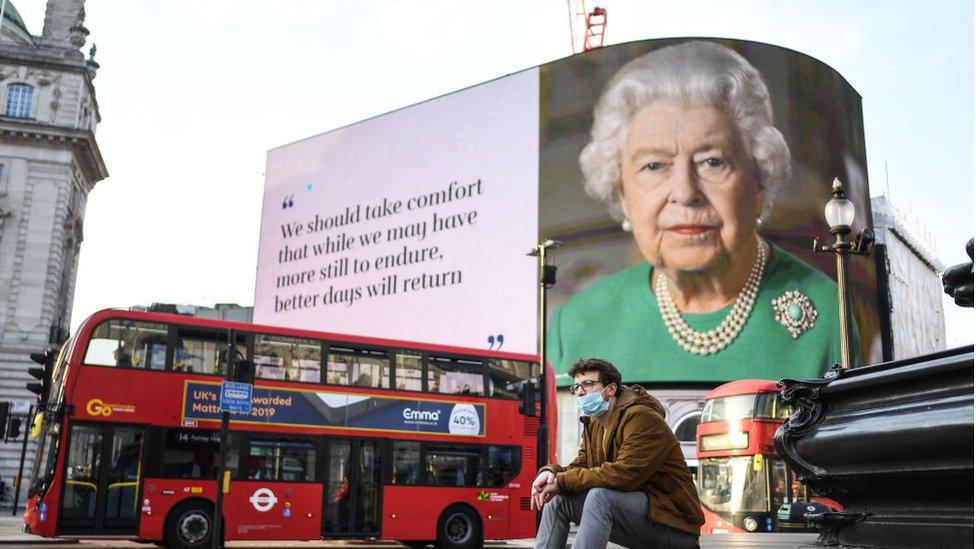
The Queen made a broadcast to the nation in relation to the coronavirus epidemic
In 2020 and 2021, the UK faced a very challenging time living through the coronavirus pandemic that affected the whole world.
During this time, the Queen encouraged the British public to keep going and offered them her support.
She made a special TV broadcast saying that: "Whilst we have faced challenges before, this one is different.
"We should take comfort that while we may still have more to endure, better days will return."
Her message of hope to the nation was watched by nearly 24 million people. A comforting call for calm and strength at a tremendously difficult time.
We will be with our friends again. We will be with our families again. We will meet again.
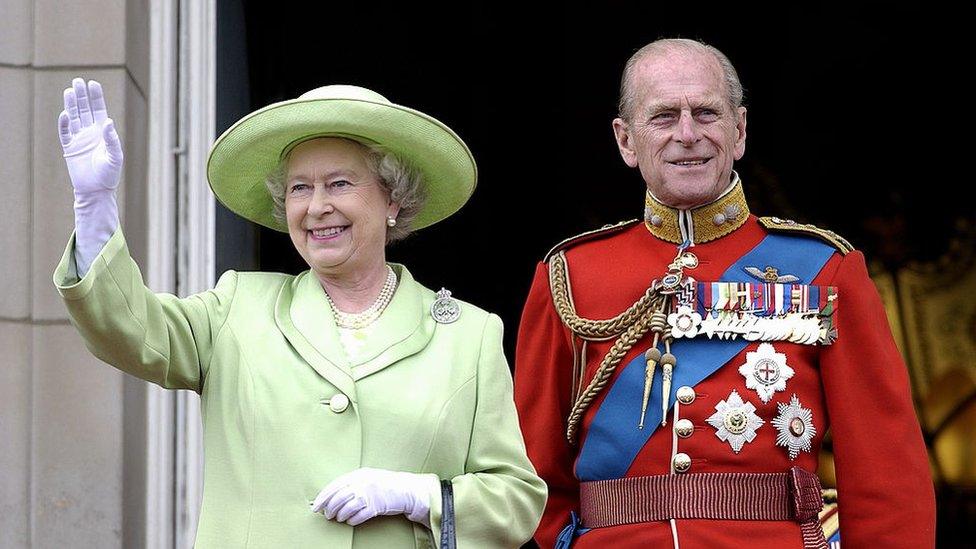
The Queen and Prince Philip were married for more than 70 years
During that time, the Queen suffered a great loss when at the age of 99, her husband Prince Philip, Duke of Edinburgh, died in 2021.
As his death happened during the pandemic, his funeral wasn't the huge public event it might have been and although many tributes were paid - which the Queen said touched her deeply - her Majesty had to sit alone at the funeral.
He has, quite simply, been my strength and stay all these years.
Later years and family celebrations
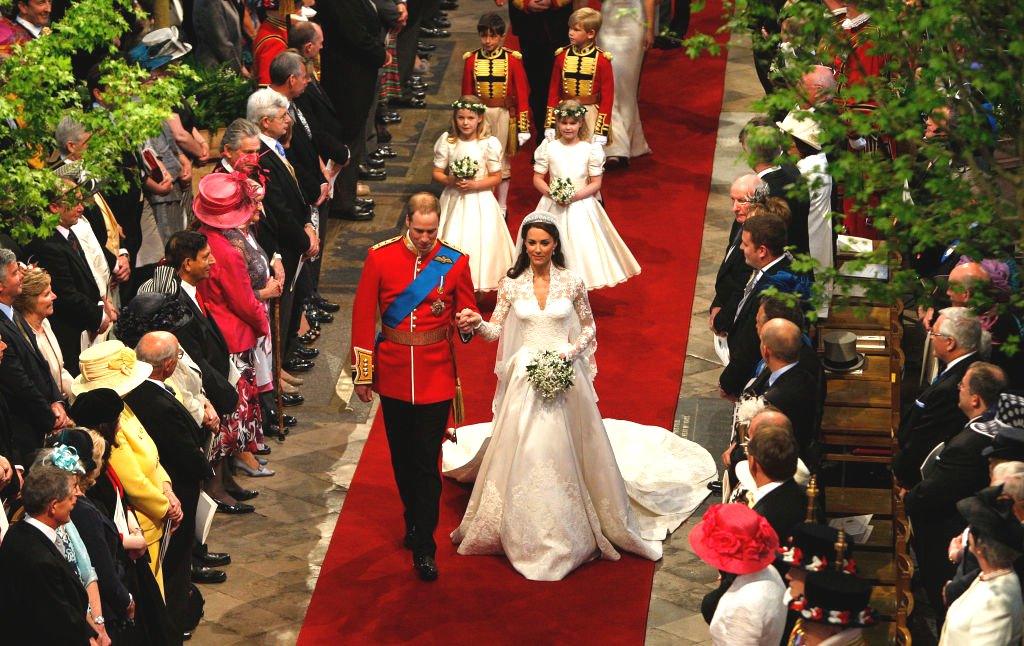
The Royal Wedding between William and Catherine was a huge occasion and was watched around the world
Over the later years of her rule there were lots of royal celebrations.
One of the biggest was in 2011 with the wedding of Prince William to Catherine Middleton - now the Duke and Duchess of Cambridge.
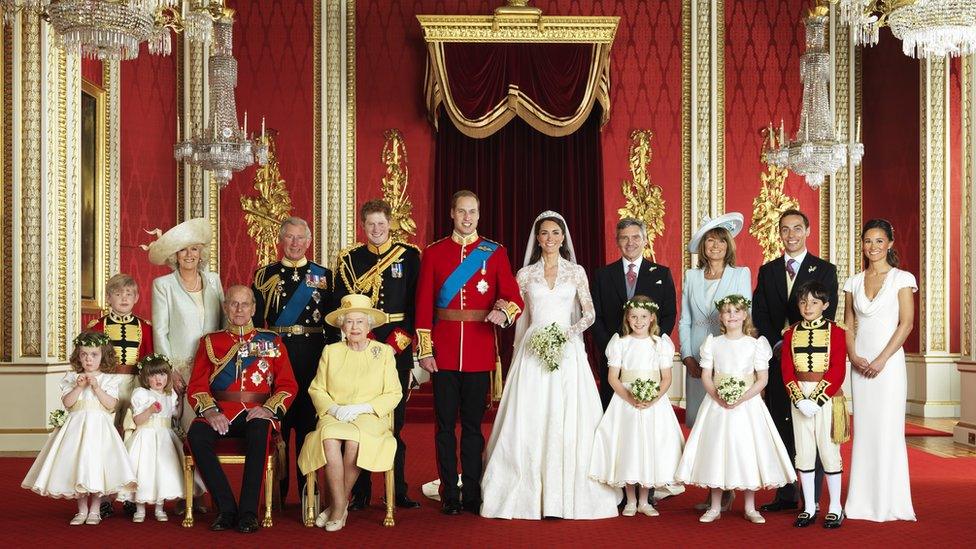
William and Catherine's wedding was a huge national celebration
Around a million people gathered on the streets of London. Some even camped out for days to see the royal couple.
The Duke and Duchess of Cambridge have gone on to have three children - Prince George in 2013, Princess Charlotte in 2015 and, more recently in 2018, Prince Louis.
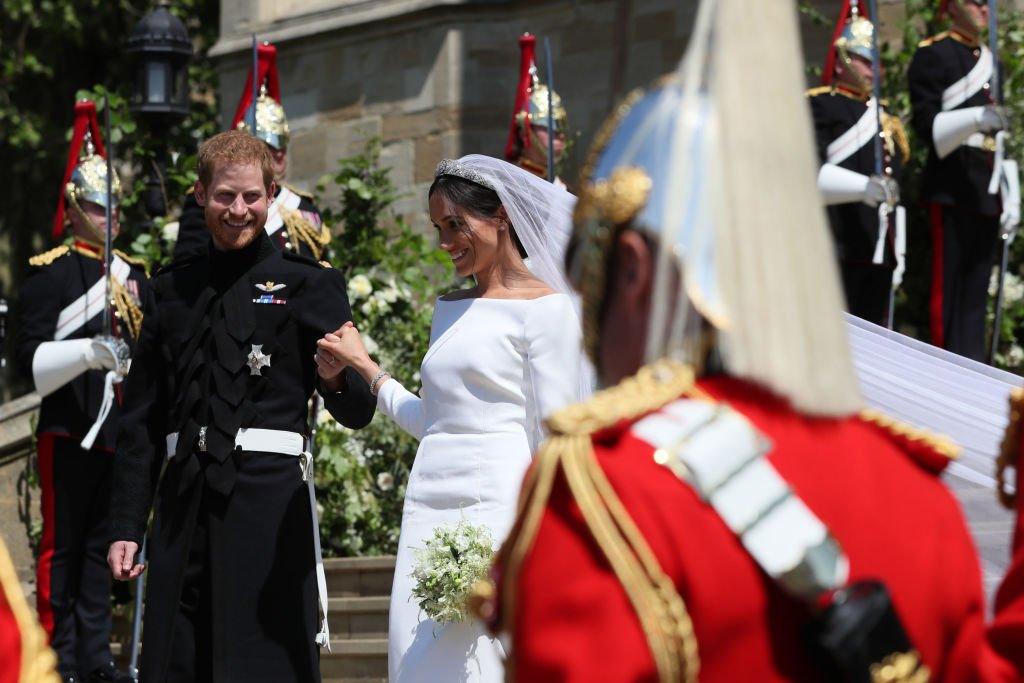
In May 2018, the nation celebrated as the Queen's grandson Prince Harry married American actress Meghan Markle
But there was more to celebrate that year. Less than a month after the birth of Prince Louis, Prince Harry married the American actress, Meghan Markle.
Although they stepped aside as working members of the Royal family and moved to America, they gave the Queen two more grandchildren - Archie in 2019 and, in 2021, Lilibet - named after Her Majesty's own childhood nickname.
Family was extremely important to the Queen. As well as having four of her own children, she had eight grandchildren, and 12 great-grandchildren.
The Queen travelled more than any other monarch, visiting a total of 116 different countries throughout her reign.
She holds a world record for appearing on currency in at least 35 different countries.
That was more than any other living monarch!
Even some countries where she wasn't Queen anymore kept her face on their cash.
Jubilee celebrations
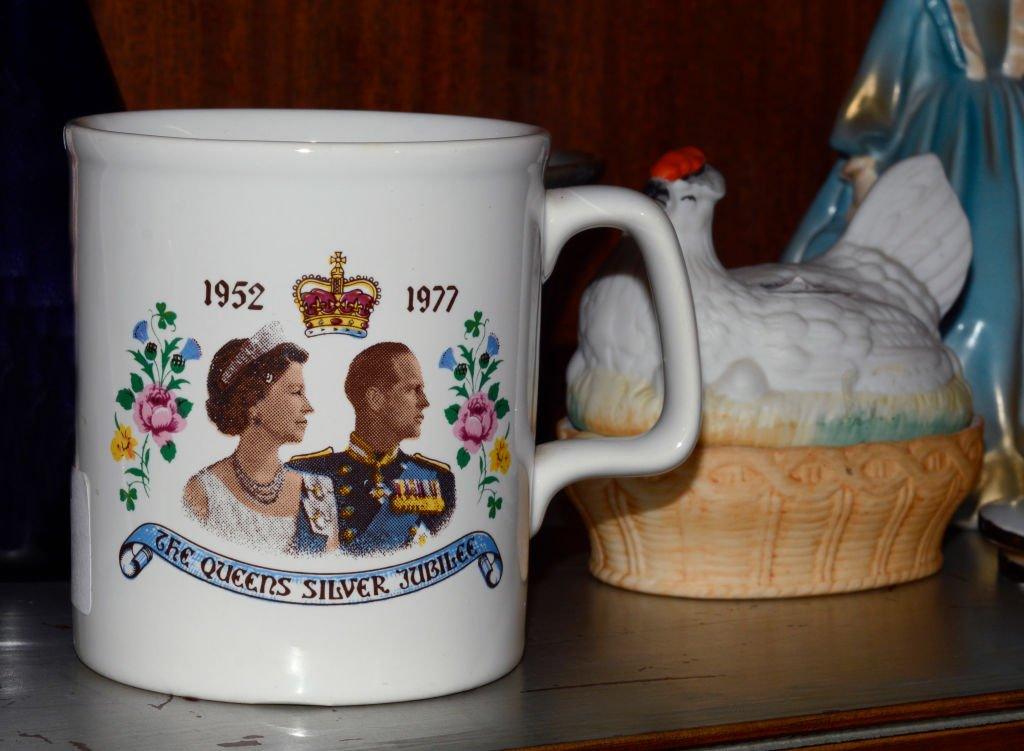
Lots of memorabilia was made - and bought - to mark the Queen's Silver Jubilee
The Queen has always celebrated her rule with special landmark events.
In 1977 she celebrated 25 years on the throne with large parties in every major city of the United Kingdom, as well as for smaller ones for countless individual streets throughout the country.
On 6 June, the Queen lit a bonfire beacon at Windsor Castle, which started a chain of other beacons throughout the whole country.
The Jubilee was a huge event around the UK and a new line on the London Underground named in honour of the occasion - the Jubilee Line.
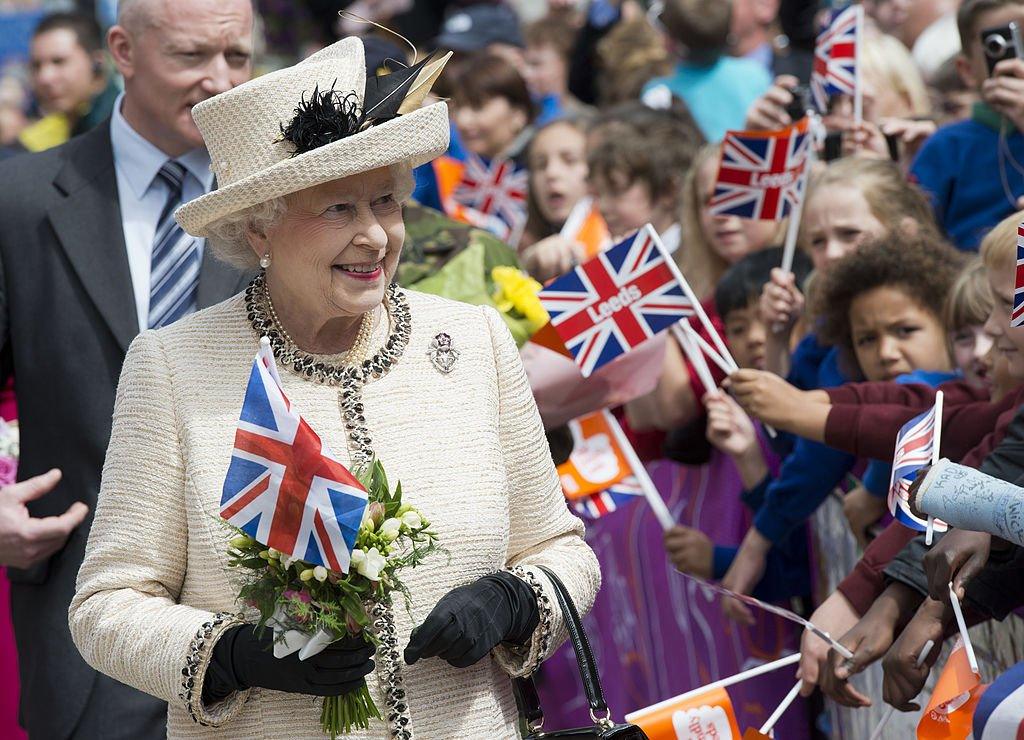
Queen Elizabeth II visited many parts of the UK as part of her Diamond Jubilee Tour
2012 was a great year of celebration for the Royal Family as they marked Queen Elizabeth's Diamond Jubilee. That meant she had spent an incredible 60 years on the throne.
There were parties around the country, a parade of boats known as a flotilla along the River Thames in London, and even a pop concert at Buckingham Palace.
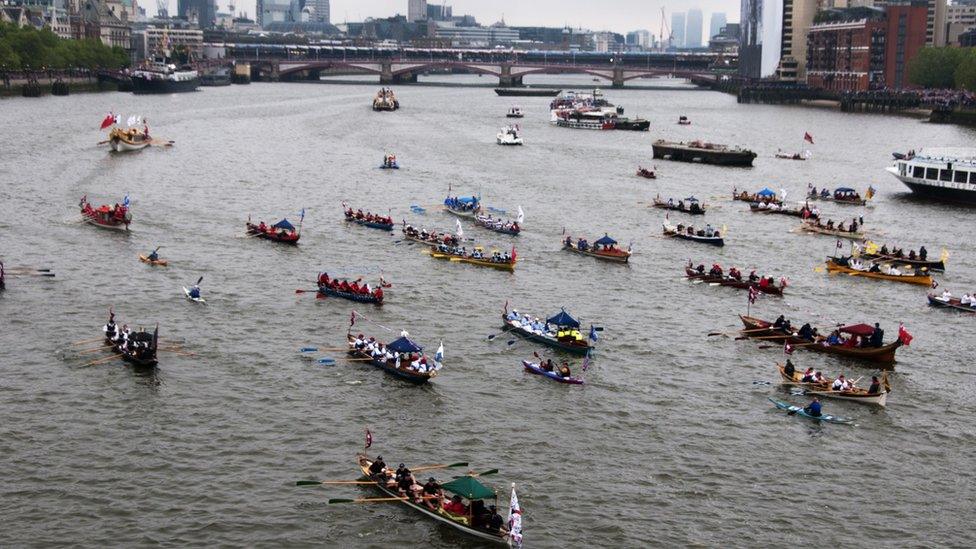
A parade of boats known as a flotilla sailed down the River Thames in London to mark the Queen's Diamond Jubilee celebrations
The Jubilee came in the same year as the 2012 London Olympics and the Queen decided to show people her sense of fun by making a special appearance in a film made for the Olympic opening ceremony.
In the film it looked as though the Queen parachuted out of a helicopter along with James Bond.
The Queen makes an appearance on the balcony of Buckingham Palace during her Platinum Jubilee celebrations
Then in June 2022, the Queen celebrated a record 70 years on the throne as part of her Platinum Jubilee celebrations.
Due to some health concerns, the monarch limited the events she attended during a four-day bank holiday weekend of national celebrations.
There was a big pop concert outside of Buckingham Palace and the Queen did make an appearance on the balcony of her home in London for a flypast of military aircraft.
It was to be one of her final public appearances.
A life of service
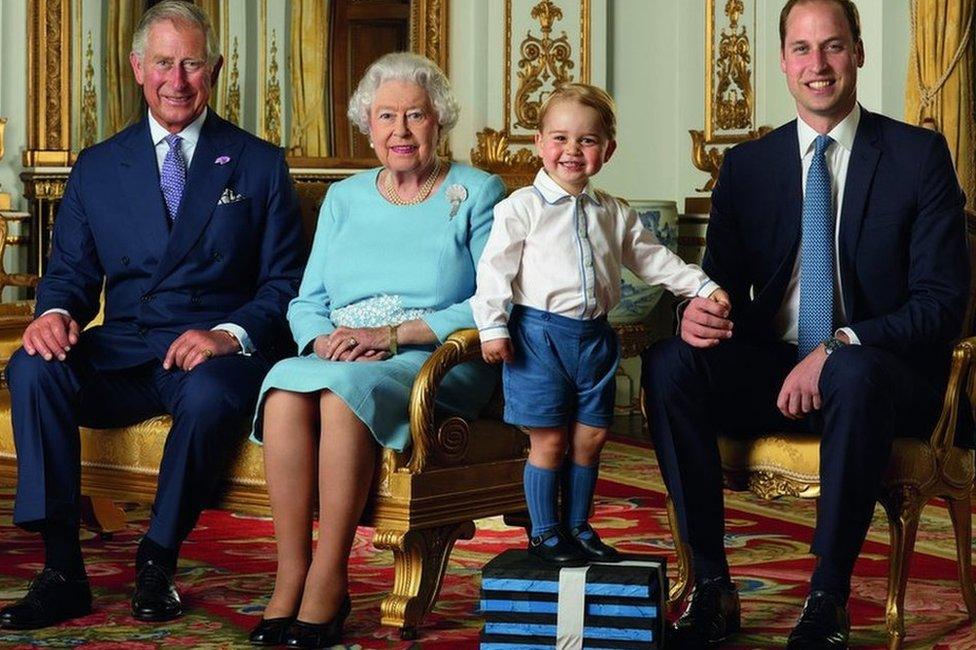
Four generations of the Royal Family - this photo was taken for a stamp sheet to mark the Queen's 90th birthday
The Queen has seen a huge amount of change to the UK and to the world during her reign, and over the years she became a loved and popular presence around the world.
She also lived to see the future of the Royal family secured with three future kings born during her lifetime: her son Prince Charles, her grandson Prince William and her great-grandson Prince George.
Many generations of prime ministers and world leaders have come to pay tribute to her, and she will be remembered as a monarch who never failed to put duty and service to her country at the centre of her life.
